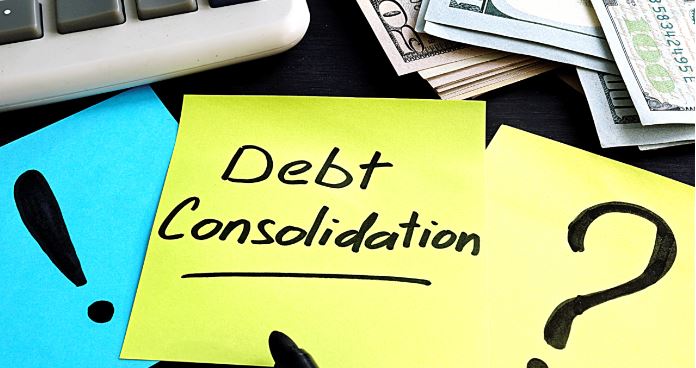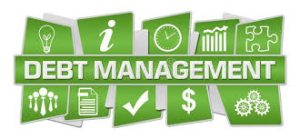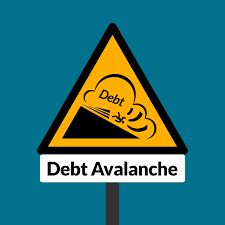Debt consolidation options provide a way to simplify your finances and potentially reduce the overall cost of your debt. This guide explores various debt consolidation methods, helping you understand which option might be best for your financial situation.
Skale Money Key Takeaways
- Debt consolidation options include balance transfer cards, personal loans, home equity options, and debt management plans, which offer various strategies to simplify your finances and potentially reduce interest costs.
- The best debt consolidation option depends on your specific financial situation, including your credit score, total debt amount, types of debt, and whether you own a home.
- While debt consolidation can provide benefits like simplified payments and lower interest rates, addressing the root causes of debt is crucial to avoid future financial difficulties.
- Qualifying for debt consolidation often requires a decent credit score, stable income, and a manageable debt-to-income ratio. Improving these factors can increase your chances of approval and better terms.
- Before choosing a debt consolidation option, consider the pros and cons, including potential fees, repayment terms, and the impact on your credit score. Consulting with a financial advisor can help you make an informed decision.
Table of Contents
Exploring Your Debt Consolidation Options
Balance Transfer Credit Card
A balance transfer credit card allows you to move high-interest debt to a card with a lower interest rate, often with an introductory 0% APR period.
- Pros:
- Potential for significant interest savings
- Simplifies multiple debts into one payment
- Cons:
- Typically requires good to excellent credit
- Balance transfer fees may apply
- Interest rates may increase after the introductory period
Home Equity Loan or Home Equity Line of Credit (HELOC)
These options allow homeowners to borrow against their home’s equity to consolidate debts.
- Home Equity Loan:
- Fixed interest rate and term
- Lump-sum payment
- HELOC:
- Variable interest rate
- Revolving credit line
| Feature | Home Equity Loan | HELOC |
| Interest Rate | Fixed | Variable |
| Disbursement | Lump sum | As needed |
| Repayment | Fixed monthly payments | Flexible, often interest-only initially |
Debt Consolidation Loan
A debt consolidation loan is a personal loan used to pay off multiple debts, combining them into a single monthly payment.
- Benefits:
- Fixed interest rate and repayment term
- Potentially lower interest rate than credit cards
- Simplifies multiple debts into one payment
- Considerations:
- Interest rates vary based on credit score
- May require collateral for secured loans
Peer-to-Peer Loan
Peer-to-peer lending platforms connect borrowers directly with individual lenders, often offering competitive rates for debt consolidation.
- Advantages:
- Potentially lower interest rates than traditional loans
- Quick application and funding process
- Disadvantages:
- May have strict credit requirements
- Origination fees may apply
Debt Management Plan
A debt management plan is a structured repayment program typically arranged through a credit counseling agency.
- Key features:
- Single monthly payment to the agency, which distributes funds to creditors
- Potential for reduced interest rates and waived fees
- Usually requires closing credit accounts
Reasons to Consolidate Your Debt
Photo by Alice Pasqual on Unsplash
- Simplify Your Finances: Consolidate multiple payments into one, making budgeting easier.
- Potentially Lower Interest Rates: Secure a lower overall interest rate to reduce total debt cost.
- Fixed Repayment Schedule: Establish a clear timeline for becoming debt-free.
- Improve Your Credit Score: Regular, on-time payments can positively impact your credit.
- Reduce Financial Stress: Gain peace of mind with a structured approach to debt repayment.
How to Choose a Debt Consolidation Option
Selecting the right debt consolidation option depends on several factors:
- Total debt amount
- Types of debt (credit cards, personal loans, etc.)
- Your credit score
- Homeownership status
- Financial goals and preferences
Consider consulting with a financial advisor to determine the best debt consolidation option for your situation.
How to Qualify for a Debt Consolidation Loan
Photo by Towfiqu barbhuiya on Unsplash
To improve your chances of qualifying for a debt consolidation loan:
- Check your credit score and report
- Improve your debt-to-income ratio
- Gather necessary financial documents
- Shop around for the best rates and terms
- Consider a co-signer if your credit is less than ideal
Bottomline
Debt consolidation options can be powerful tools for managing your finances, but choosing the right option is crucial. Whether you opt for a balance transfer card, a debt consolidation loan, or another method, the key is to have a solid plan for repaying your debt and avoiding future financial strain.
Frequently Asked Questions
- What is debt consolidation? Debt consolidation is the process of combining multiple debts into a single loan or payment, often with the goal of securing a lower interest rate or simplifying repayment.
- Will debt consolidation hurt my credit score? Initially, debt consolidation may cause a slight dip in your credit score due to credit inquiries. However, over time, consistent payments can improve your score.
- How long does debt consolidation take? Depending on the method chosen and your financial situation, the process can take a few weeks to a few months.
- Can I consolidate all types of debt? Most unsecured debts, including credit card debt and personal loans, can be consolidated. However, certain types of debt, like mortgages or federal student loans, may have specific consolidation options.
- Is debt consolidation the same as debt settlement? No, debt consolidation combines your debts into one payment. In contrast, debt settlement involves negotiating with creditors to pay less than what you owe, often negatively impacting your credit score.
Author: Cosmas Mwirigi
Cosmas Mwirigi is an established freelance writer with over five years of experience and the founder of Skalemoney.com. His content has been published by multiple publishers, including PV-Magazine, Slidebean, Bridge Global, Casinos.com, Gambling.com, and Reverbico. Mwirigi is an expert writer in iGaming, B2B, SaaS, Finance, digital marketing and Solar renewable energy. To contact him for his services, connect with him on his LinkedIn.
![]()




